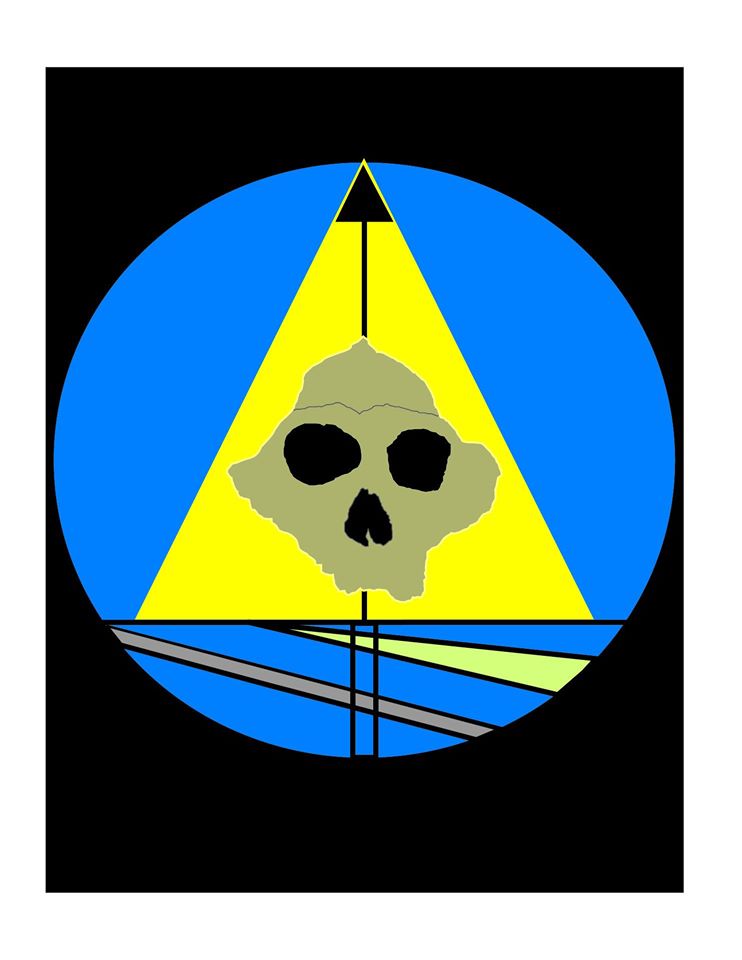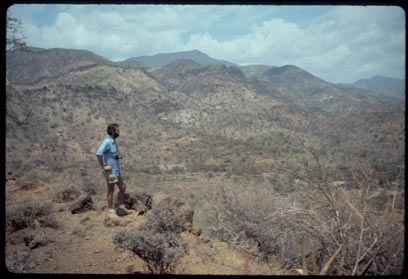Hominin Site Paleolake Project (HSPDP):
 This project, led by Andy Cohen (University of Arizona), includes an international team of over 75 senior researchers and is currently involved in extracting and analyzing terrestrial cores from five hominin sites in Kenya and Ethiopia. The goal is to develop high resolution links between environmental change and hominin evolution. This research is funded by grants from the International Continental Drilling Project, NSF-Integrative Paleoanthropology Grant, and NSF-Frontiers in Earth System Dynamics.
This project, led by Andy Cohen (University of Arizona), includes an international team of over 75 senior researchers and is currently involved in extracting and analyzing terrestrial cores from five hominin sites in Kenya and Ethiopia. The goal is to develop high resolution links between environmental change and hominin evolution. This research is funded by grants from the International Continental Drilling Project, NSF-Integrative Paleoanthropology Grant, and NSF-Frontiers in Earth System Dynamics.
Napak/Moroto Hominoid Evolution:
![]() Ongoing research is investigating how the environment may have selected for key adaptive features relevant to the evolution of hominoids and to the origin of hominins. The project is headed by Laura MacLatchy (University of Michigan) and regular team members include Robert Kityo (Makerere University), Susy Cote (University of Calgary), Bill Sanders (University of Michigan), Alisa Winkler (Southern Methodist University), and Amon Mugume (Uganda National Museum). This research is currently part of the REACHE (Research on East African Catarrhine and Hominoid Evolution) project that includes Kieren McNulty (University of Minnesota), James Rossie (Stony Brook University) and an international group of senior scientists working in collaboration with the Uganda National Museum, Makerere University, and the National Museums of Kenya. This research is funded by an IPG-NSF grant.
Ongoing research is investigating how the environment may have selected for key adaptive features relevant to the evolution of hominoids and to the origin of hominins. The project is headed by Laura MacLatchy (University of Michigan) and regular team members include Robert Kityo (Makerere University), Susy Cote (University of Calgary), Bill Sanders (University of Michigan), Alisa Winkler (Southern Methodist University), and Amon Mugume (Uganda National Museum). This research is currently part of the REACHE (Research on East African Catarrhine and Hominoid Evolution) project that includes Kieren McNulty (University of Minnesota), James Rossie (Stony Brook University) and an international group of senior scientists working in collaboration with the Uganda National Museum, Makerere University, and the National Museums of Kenya. This research is funded by an IPG-NSF grant.
Baringo Paleontological Research Project:
 In collaboration with Andrew Hill (Yale University) and Al Deino (Berkeley Geochronology Center), we are exploring the paleontology, stratigraphy, geochronology, and paleoecology of the Tugen Hills Succession, Baringo Basin, Kenyan Rift Valley. The Tugen Hills sequence is unusual in providing sedimentary and faunal information over a relatively long period of time, from 14 Ma to the Pleistocene, and including some periods not yet noted elsewhere in sub-Saharan Africa. The sediments record changing depositional environments in an evolving rift system, and the enclosed fossils permit the evolutionary lineages of a number of families of animals important in the modern African fauna to be elucidated.
In collaboration with Andrew Hill (Yale University) and Al Deino (Berkeley Geochronology Center), we are exploring the paleontology, stratigraphy, geochronology, and paleoecology of the Tugen Hills Succession, Baringo Basin, Kenyan Rift Valley. The Tugen Hills sequence is unusual in providing sedimentary and faunal information over a relatively long period of time, from 14 Ma to the Pleistocene, and including some periods not yet noted elsewhere in sub-Saharan Africa. The sediments record changing depositional environments in an evolving rift system, and the enclosed fossils permit the evolutionary lineages of a number of families of animals important in the modern African fauna to be elucidated.
Ecological Diversity in Uganda:
With colleagues and students at Makerere University, Kampala, Uganda, we are developing isotopic profiles of variable East African ecosystems to characterize biochemical cycling related to climatic variables, foraging strategies, microhabitats, and digestive physiology. Robert Kityo (Makerere University) and his students form the core of this research.



